- Home
- D. H. Lawrence
The Wintry Peacock Page 2
The Wintry Peacock Read online
Page 2
In the night, however, we heard him thumping about. I got up anxiously with a candle. He had eaten some food, and scattered more, making a mess. And he was perched on the back of a heavy arm-chair. So I concluded he was recovered, or recovering.
The next day was clear, and the snow had frozen, so I decided to carry him back to Tible. He consented, after various flappings, to sit in a big fish-bag with his battered head peeping out with wild uneasiness. And so I set off with him, slithering down into the valley, making good progress down in the pale shadows beside the rushing waters, then climbing painfully up the arrested white valley-side, plumed with clusters of young pine-trees, into the paler white radiance of the snowy upper regions, where the wind cut fine. Joey seemed to watch all the time with wide, anxious, unseeing eyes, brilliant and inscrutable. As I drew near to Tible township, he stirred violently in the bag, though I do not know if he had recognised the place. Then, as I came to the sheds, he looked sharply from side to side, and stretched his neck out long. I was a little afraid of him. He gave a loud, vehement yell, opening his sinister beak, and I stood still, looking at him as he struggled in the bag, shaken myself by his struggles, yet not thinking to release him.
Mrs. Goyte came darting past the end of the house, her head sticking forward in sharp scrutiny. She saw me, and came forward.
"Have you got Joey?" she cried sharply, as if I were a thief.
I opened the bag, and he flopped out, flapping as if he hated the touch of the snow, now. She gathered him up and put her lips to his beak. She was flushed and handsome, her eyes bright, her hair slack, thick, but more witch-like than ever. She did not speak.
She had been followed by a grey-haired woman with a round, rather sallow face and a slightly hostile bearing.
"Did you bring him with you, then?" she asked sharply. I answered that I had rescued him the previous evening.
From the background slowly approached a slender man with a grey moustache and large patches on his trousers.
"You've got 'im back 'gain, Ah see," he said to his daughter-in-law. His wife explained how I had found Joey.
"Ah," went on the grey man. "It wor our Alfred scarred him off, back your life. He must 'a' flyed ower t' valley. Tha ma' thank thy stars as 'e wor fun, Maggie. 'E'd a bin froze. They a bit nesh, you know," he concluded to me.
"They are," I answered. "This isn't their country."
"No, it isna," replied Mr. Goyte. He spoke very slowly and deliberately, quietly, as if the soft pedal were always down in his voice. He looked at his daughter-in-law as she crouched, flushed and dark, before the peacock, which would lay its long blue neck for a moment along her lap. In spite of his grey moustache and thin grey hair, the elderly man had a face young and almost delicate, like a young man's. His blue eyes twinkled with some inscrutable source of pleasure, his skin was fine and tender, his nose delicately arched. His grey hair being slightly ruffled, he had a debonnair look, as of a youth who is in love.
"We mun tell 'im it's come," he said slowly, and turning he called:
"Alfred—Alfred! Wheer's ter gotten to?"
Then he turned again to the group.
"Get up, then, Maggie, lass, get up wi' thee. Tha ma'es too much o' th' bod."
A young man approached, limping, wearing a thick short coat and knee-breeches. He was Danish-looking, broad at the loins.
"I's come back, then," said the father to the son—"leastwise, he's bin browt back, flyed ower the Griff Low."
The son looked at me. He had a devil-may-care bearing, his cap on one side, his hands stuck in the front pockets of his breeches. But he said nothing.
"Shall you come in a minute, Master?" said the elderly woman, to me.
"Ay, come in an' ha'e a cup o' tea or summat. You'll do wi' summat, carryin' that bod. Come on, Maggie wench, let's go in."
So we went indoors, into the rather stuffy, overcrowded living-room, that was too cosy and too warm. The son followed last, standing in the doorway. The father talked to me. Maggie put out the tea-cups. The mother went into the dairy again.
"Tha'lt rouse thysen up a bit again now, Maggie," the father-in-law said—and then to me: "'Er's not bin very bright sin' Alfred come whoam, an' the bod flyed awee. 'E come whoam a Wednesday night, Alfred did. But ay, you knowed, didna yer. Ay, 'e comed 'a Wednesday—an' I reckon there wor a bit of a to-do between 'em, worn't there, Maggie?"
He twinkled maliciously to his daughter-in-law, who was flushed brilliant and handsome.
"Oh, be quiet, father. You're wound up, by the sound of you," she said to him, as if crossly. But she could never be cross with him.
"'Er's got 'er colour back this mornin'," continued the father-in-law slowly. "It's bin heavy weather wi' 'er this last two days. Ay—'er's bin north-east sin 'er seed you a Wednesday."
"Father, do stop talking. You'd wear the leg off an iron pot. I can't think where you've found your tongue, all of a sudden," said Maggie, with caressive sharpness.
"Ah've found it wheer I lost it. Aren't goin' ter come in an' sit thee down, Alfred?"
But Alfred turned and disappeared.
"'E's got th' monkey on 'is back, ower this letter job," said the father secretly to me. "Mother 'er knows nowt about it. Lot o' tomfoolery, isn't it? Ay! What's good o' makin' a peck o' trouble ower what's far enough off, an' ned niver come no nigher. No—not a smite o' use. That's what I tell 'er. 'Er should ta'e no notice on't. Ay, what can y'expect."
The mother came in again, and the talk became general. Maggie flashed her eyes at me from time to time, complacent and satisfied, moving among the men. I paid her little compliments, which she did not seem to hear. She attended to me with a kind of sinister, witch-like gracious-ness, her dark head ducked between her shoulders, at once humble and powerful. She was happy as a child attending to her father-in-law and to me. But there was something ominous between her eyebrows, as if a dark moth were settled there—and something ominous in her bent, hulking bearing.
She sat on a low stool by the fire, near her father-in-law. Her head was dropped, she seemed in a state of abstraction. From time to time she would suddenly recover, and look up at us, laughing and chatting. Then she would forget again. Yet in her hulked black forgetting she seemed very near to us.
The door having been opened, the peacock came slowly in, prancing calmly. He went near to her, and crouched down, coiling his blue neck. She glanced at him, but almost as if she did not observe him. The bird sat silent, seeming to sleep, and the woman also sat huddled and silent, seeming oblivious. Then once more there was a heavy step, and Alfred entered. He looked at his wife, and he looked at the peacock crouching by her. He stood large in the doorway, his hands stuck in front of him, in his breeches pockets. Nobody spoke. He turned on his heel and went out again.
I rose also to go. Maggie started as if coming to herself.
"Must you go?" she asked, rising and coming near to me, standing in front of me, twisting her head sideways and looking up at me. "Can't you stop a bit longer? We can all be cosy to-day, there's nothing to do outdoors." And she laughed, showing her teeth oddly. She had a long chin.
I said I must go. The peacock uncoiled and coiled again his long blue neck as he lay on the hearth. Maggie still stood close in front of me, so that I was acutely aware of my waistcoat buttons.
"Oh, well," she said, "you'll come again, won't you? Do come again."
I promised.
"Come to tea one day—yes, do!"
I promised—one day.
The moment I was out of her presence I ceased utterly to exist for her—as utterly as I ceased to exist for Joey. With her curious abstractedness she forgot me again immediately. I knew it as I left her. Yet she seemed almost in physical contact with me while I was with her.
The sky was all pallid again, yellowish. When I went out there was no sun; the snow was blue and cold. I hurried away down the hill, musing on Maggie. The road made a loop down the sharp face of the slope. As I went crunching over the laborious snow I became aware of a
figure striding awkwardly down the steep scarp to intercept me. It was a man with his hands in front of him, half stuck in his breeches pockets, and his shoulders square—a real knock-about fellow. Alfred, of course. He waited for me by the stone fence.
"Excuse me," he said as I came up.
I came to a halt in front of him and looked into his sullen blue eyes. He had a certain odd haughtiness on his brows. But his blue eyes stared insolently at me.
"Do you know anything about a letter—in French—that my wife opened—a letter of mine?"
"Yes," said I. "She asked me to read it to her."
He looked square at me. He did not know exactly how to feel.
"What was there in it?" he asked.
"Why?" I said. "Don't you know?"
"She makes out she's burnt it," he said.
"Without showing it you?" I asked.
He nodded slightly. He seemed to be meditating as to what line of action he should take. He wanted to know the contents of the letter: he must know: and therefore he must ask me, for evidently his wife had taunted him. At the same time, no doubt, he would like to wreak untold vengeance on my unfortunate person. So he eyed me, and I eyed him, and neither of us spoke. He did not want to repeat his request to me. And yet I only looked at him, and considered.
Suddenly he threw back his head and glanced down the valley. Then he changed his position and he looked at me more confidentially.
"She burnt the blasted thing before I saw it," he said.
"Well," I answered slowly, "she doesn't know herself what was in it."
He continued to watch me narrowly. I grinned to myself.
"I didn't like to read her out what there was in it," I continued.
He suddenly flushed out so that the veins in his neck stood out, and he stirred again uncomfortably.
"The Belgian girl said her baby had been born a week ago, and that they were going to call it Alfred," I told him.
He met my eyes. I was grinning. He began to grin, too.
"Good luck to her," he said.
"Best of luck," said I.
"And what did you tell her?" he asked.
"That the baby belonged to the old mother—that it was brother to your girl, who was writing to you as a friend of the family."
He stood smiling, with the long, subtle malice of a farmer.
"And did she take it in?" he asked.
"As much as she took anything else."
He stood grinning fixedly. Then he broke into a short laugh.
"Good for her!" he exclaimed cryptically.
And then he laughed aloud once more, evidently feeling he had won a big move in his contest with his wife.
"What about the other woman?" I asked.
"Who?"
"Elise."
"Oh"—he shifted uneasily—"she was all right———"
"You'll be getting back to her," I said.
He looked at me. Then he made a grimace with his mouth.
"Not me," he said. "Back your life it's a plant."
"You don't think the cher petit bébé is a little Alfred?"
"It might be," he said.
"Only might?"
"Yes—an' there's lots of mites in a pound of cheese." He laughed boisterously but uneasily.
"What did she say, exactly?" he asked.
I began to repeat, as well as I could, the phrases of the letter:
"Mon cher Alfred,—Figure-toi comme je suis désolée——"
He listened with some confusion. When I had finished all I could remember, he said:
"They know how to pitch you out a letter, those Belgian lasses."
"Practice," said I.
"They get plenty," he said.
There was a pause.
"Oh well," he said. "I've never got that letter, anyhow."
The wind blew fine and keen, in the sunshine, across the snow. I blew my nose and prepared to depart.
"And she doesn't know anything?" he continued, jerking his head up the hill in the direction of Tible.
"She knows nothing but what I've said—that is, if she really burnt the letter."
"I believe she burnt it," he said, "for spite. She's a little devil, she is. But I shall have it out with her." His jaw was stubborn and sullen. Then suddenly he turned to me with a new note.
"Why?" he said. "Why didn't you wring that b—— peacock's neck—that b——Joey?"
"Why?" I said. "What for?"
"I hate the brute," he said. "I let fly at him the night I got back——"
I laughed. He stood and mused.
"Poor little Elise," he murmured.
"Was she small—petite?" I asked. He jerked up his head.
"No," he said. "Rather tall."
"Taller than your wife, I suppose."
Again he looked into my eyes. And then once more he went into a loud burst of laughter that made the still, snow-deserted valley clap again.
"God, it's a knockout!" he said, thoroughly amused. Then he stood at ease, one foot out, his hands in his breeches pocket, in front of him, his head thrown back, a handsome figure of a man.
"But I'll do that blasted Joey in——" he mused, I ran down the hill, shouting also with laughter.
End of the Project Gutenberg EBook of Wintry Peacock, by D. H. Lawrence *** END OF THIS PROJECT GUTENBERG EBOOK WINTRY PEACOCK *** ***** This file should be named 22477-h.htm or 22477-h.zip ***** This and all associated files of various formats will be found in: http://www.gutenberg.org/2/2/4/7/22477/ Produced by David Widger Updated editions will replace the previous one--the old editions will be renamed. Creating the works from public domain print editions means that no one owns a United States copyright in these works, so the Foundation (and you!) can copy and distribute it in the United States without permission and without paying copyright royalties. Special rules, set forth in the General Terms of Use part of this license, apply to copying and distributing Project Gutenberg-tm electronic works to protect the PROJECT GUTENBERG-tm concept and trademark. Project Gutenberg is a registered trademark, and may not be used if you charge for the eBooks, unless you receive specific permission. If you do not charge anything for copies of this eBook, complying with the rules is very easy. You may use this eBook for nearly any purpose such as creation of derivative works, reports, performances and research. They may be modified and printed and given away--you may do practically ANYTHING with public domain eBooks. Redistribution is subject to the trademark license, especially commercial redistribution. *** START: FULL LICENSE *** THE FULL PROJECT GUTENBERG LICENSE PLEASE READ THIS BEFORE YOU DISTRIBUTE OR USE THIS WORK To protect the Project Gutenberg-tm mission of promoting the free distribution of electronic works, by using or distributing this work (or any other work associated in any way with the phrase "Project Gutenberg"), you agree to comply with all the terms of the Full Project Gutenberg-tm License (available with this file or online at http://gutenberg.org/license). Section 1. General Terms of Use and Redistributing Project Gutenberg-tm electronic works 1.A. By reading or using any part of this Project Gutenberg-tm electronic work, you indicate that you have read, understand, agree to and accept all the terms of this license and intellectual property (trademark/copyright) agreement. If you do not agree to abide by all the terms of this agreement, you must cease using and return or destroy all copies of Project Gutenberg-tm electronic works in your possession. If you paid a fee for obtaining a copy of or access to a Project Gutenberg-tm electronic work and you do not agree to be bound by the terms of this agreement, you may obtain a refund from the person or entity to whom you paid the fee as set forth in paragraph 1.E.8. 1.B. "Project Gutenberg" is a registered trademark. It may only be used on or associated in any way with an electronic work by people who agree to be bound by the terms of this agreement. There are a few things that you can do with most Project Gutenberg-tm electronic works even without complying with the full terms of this agreement. See paragraph 1.C below. There are a lot of things you can do with Project Gutenberg-tm electronic works if you follow the
terms of this agreement and help preserve free future access to Project Gutenberg-tm electronic works. See paragraph 1.E below. 1.C. The Project Gutenberg Literary Archive Foundation ("the Foundation" or PGLAF), owns a compilation copyright in the collection of Project Gutenberg-tm electronic works. Nearly all the individual works in the collection are in the public domain in the United States. If an individual work is in the public domain in the United States and you are located in the United States, we do not claim a right to prevent you from copying, distributing, performing, displaying or creating derivative works based on the work as long as all references to Project Gutenberg are removed. Of course, we hope that you will support the Project Gutenberg-tm mission of promoting free access to electronic works by freely sharing Project Gutenberg-tm works in compliance with the terms of this agreement for keeping the Project Gutenberg-tm name associated with the work. You can easily comply with the terms of this agreement by keeping this work in the same format with its attached full Project Gutenberg-tm License when you share it without charge with others. 1.D. The copyright laws of the place where you are located also govern what you can do with this work. Copyright laws in most countries are in a constant state of change. If you are outside the United States, check the laws of your country in addition to the terms of this agreement before downloading, copying, displaying, performing, distributing or creating derivative works based on this work or any other Project Gutenberg-tm work. The Foundation makes no representations concerning the copyright status of any work in any country outside the United States. 1.E. Unless you have removed all references to Project Gutenberg: 1.E.1. The following sentence, with active links to, or other immediate access to, the full Project Gutenberg-tm License must appear prominently whenever any copy of a Project Gutenberg-tm work (any work on which the phrase "Project Gutenberg" appears, or with which the phrase "Project Gutenberg" is associated) is accessed, displayed, performed, viewed, copied or distributed: This eBook is for the use of anyone anywhere at no cost and with almost no restrictions whatsoever. You may copy it, give it away or re-use it under the terms of the Project Gutenberg License included with this eBook or online at www.gutenberg.org 1.E.2. If an individual Project Gutenberg-tm electronic work is derived from the public domain (does not contain a notice indicating that it is posted with permission of the copyright holder), the work can be copied and distributed to anyone in the United States without paying any fees or charges. If you are redistributing or providing access to a work with the phrase "Project Gutenberg" associated with or appearing on the work, you must comply either with the requirements of paragraphs 1.E.1 through 1.E.7 or obtain permission for the use of the work and the Project Gutenberg-tm trademark as set forth in paragraphs 1.E.8 or 1.E.9. 1.E.3. If an individual Project Gutenberg-tm electronic work is posted with the permission of the copyright holder, your use and distribution must comply with both paragraphs 1.E.1 through 1.E.7 and any additional terms imposed by the copyright holder. Additional terms will be linked to the Project Gutenberg-tm License for all works posted with the permission of the copyright holder found at the beginning of this work. 1.E.4. Do not unlink or detach or remove the full Project Gutenberg-tm License terms from this work, or any files containing a part of this work or any other work associated with Project Gutenberg-tm. 1.E.5. Do not copy, display, perform, distribute or redistribute this electronic work, or any part of this electronic work, without prominently displaying the sentence set forth in paragraph 1.E.1 with active links or immediate access to the full terms of the Project Gutenberg-tm License. 1.E.6. You may convert to and distribute this work in any binary, compressed, marked up, nonproprietary or proprietary form, including any word processing or hypertext form. However, if you provide access to or distribute copies of a Project Gutenberg-tm work in a format other than "Plain Vanilla ASCII" or other format used in the official version posted on the official Project Gutenberg-tm web site (www.gutenberg.org), you must, at no additional cost, fee or expense to the user, provide a copy, a means of exporting a copy, or a means of obtaining a copy upon request, of the work in its original "Plain Vanilla ASCII" or other form. Any alternate format must include the full Project Gutenberg-tm License as specified in paragraph 1.E.1. 1.E.7. Do not charge a fee for access to, viewing, displaying, performing, copying or distributing any Project Gutenberg-tm works unless you comply with paragraph 1.E.8 or 1.E.9. 1.E.8. You may charge a reasonable fee for copies of or providing access to or distributing Project Gutenberg-tm electronic works provided that - You pay a royalty fee of 20% of the gross profits you derive from the use of Project Gutenberg-tm works calculated using the method you already use to calculate your applicable taxes. The fee is owed to the owner of the Project Gutenberg-tm trademark, but he has agreed to donate royalties under this paragraph to the Project Gutenberg Literary Archive Foundation. Royalty payments must be paid within 60 days following each date on which you prepare (or are legally required to prepare) your periodic tax returns. Royalty payments should be clearly marked as such and sent to the Project Gutenberg Literary Archive Foundation at the address specified in Section 4, "Information about donations to the Project Gutenberg Literary Archive Foundation." - You provide a full refund of any money paid by a user who notifies you in writing (or by e-mail) within 30 days of receipt that s/he does not agree to the terms of the full Project Gutenberg-tm License. You must require such a user to return or destroy all copies of the works possessed in a physical medium and discontinue all use of and all access to other copies of Project Gutenberg-tm works. - You provide, in accordance with paragraph 1.F.3, a full refund of any money paid for a work or a replacement copy, if a defect in the electronic work is discovered and reported to you within 90 days of receipt of the work. - You comply with all other terms of this agreement for free distribution of Project Gutenberg-tm works. 1.E.9. If you wish to charge a fee or distribute a Project Gutenberg-tm electronic work or group of works on different terms than are set forth in this agreement, you must obtain permission in writing from both the Project Gutenberg Literary Archive Foundation and Michael Hart, the owner of the Project Gutenberg-tm trademark. Contact the Foundation as set forth in Section 3 below. 1.F. 1.F.1. Project Gutenberg volunteers and employees expend considerable effort to identify, do copyright research on, transcribe and proofread public domain works in creating the Project Gutenberg-tm collection. Despite these efforts, Project Gutenberg-tm electronic works, and the medium on which they may be stored, may contain "Defects," such as, but not limited to, incomplete, inaccurate or corrupt data, transcription errors, a copyright or other intellectual property infringement, a defective or damaged disk or other medium, a computer virus, or computer codes that damage or cannot be read by your equipment. 1.F.2. LIMITED WARRANTY, DISCLAIMER OF DAMAGES - Except for the "Right of Replacement or Refund" described in paragraph 1.F.3, the Project Gutenberg Literary Archive Foundation, the owner of the Project Gutenberg-tm trademark, and any other party distributing a Project Gutenberg-tm electronic work under this agreement, disclaim all liability to you for damages, costs and expenses, including legal fees. YOU AGREE THAT YOU HAVE NO REMEDIES FOR NEGLIGENCE, STRICT LIABILITY, BREACH OF WARRANTY OR BREACH OF CONTRACT EXCEPT THOSE PROVIDED IN PARAGRAPH F3. YOU AGREE THAT THE FOUNDATION, THE TRADEMARK OWNER, AND ANY DISTRIBUTOR UNDER THIS AGREEMENT WILL NOT BE LIABLE TO YOU FOR ACTUAL, DIRECT, INDIRECT, CONSEQUENTIAL, PUNITIVE OR INCIDENTAL DAMAGES EVEN IF YOU GIVE NOTICE OF THE POSSIBILITY OF SUCH DAMAGE. 1.F.3. LIMITED RIGHT OF REPLACEMENT OR REFUND - If you discover a defect in this electronic work within 90 days of receiving it, you can receive a refund of the money (if any) you paid for it by sending a written explanation to the person you received the work from. If you received the work on a physical medium, you must return the medium with your written explanation. The person or entity that provided you with the defective work may elect to provide a replacement copy in lieu of a refund. If you received the work electronically, the person or entity providing it to you may choose to give you a second opportunity to receive the work electron
ically in lieu of a refund. If the second copy is also defective, you may demand a refund in writing without further opportunities to fix the problem. 1.F.4. Except for the limited right of replacement or refund set forth in paragraph 1.F.3, this work is provided to you 'AS-IS' WITH NO OTHER WARRANTIES OF ANY KIND, EXPRESS OR IMPLIED, INCLUDING BUT NOT LIMITED TO WARRANTIES OF MERCHANTIBILITY OR FITNESS FOR ANY PURPOSE. 1.F.5. Some states do not allow disclaimers of certain implied warranties or the exclusion or limitation of certain types of damages. If any disclaimer or limitation set forth in this agreement violates the law of the state applicable to this agreement, the agreement shall be interpreted to make the maximum disclaimer or limitation permitted by the applicable state law. The invalidity or unenforceability of any provision of this agreement shall not void the remaining provisions. 1.F.6. INDEMNITY - You agree to indemnify and hold the Foundation, the trademark owner, any agent or employee of the Foundation, anyone providing copies of Project Gutenberg-tm electronic works in accordance with this agreement, and any volunteers associated with the production, promotion and distribution of Project Gutenberg-tm electronic works, harmless from all liability, costs and expenses, including legal fees, that arise directly or indirectly from any of the following which you do or cause to occur: (a) distribution of this or any Project Gutenberg-tm work, (b) alteration, modification, or additions or deletions to any Project Gutenberg-tm work, and (c) any Defect you cause. Section 2. Information about the Mission of Project Gutenberg-tm Project Gutenberg-tm is synonymous with the free distribution of electronic works in formats readable by the widest variety of computers including obsolete, old, middle-aged and new computers. It exists because of the efforts of hundreds of volunteers and donations from people in all walks of life. Volunteers and financial support to provide volunteers with the assistance they need, is critical to reaching Project Gutenberg-tm's goals and ensuring that the Project Gutenberg-tm collection will remain freely available for generations to come. In 2001, the Project Gutenberg Literary Archive Foundation was created to provide a secure and permanent future for Project Gutenberg-tm and future generations. To learn more about the Project Gutenberg Literary Archive Foundation and how your efforts and donations can help, see Sections 3 and 4 and the Foundation web page at http://www.pglaf.org. Section 3. Information about the Project Gutenberg Literary Archive Foundation The Project Gutenberg Literary Archive Foundation is a non profit 501(c)(3) educational corporation organized under the laws of the state of Mississippi and granted tax exempt status by the Internal Revenue Service. The Foundation's EIN or federal tax identification number is 64-6221541. Its 501(c)(3) letter is posted at http://pglaf.org/fundraising. Contributions to the Project Gutenberg Literary Archive Foundation are tax deductible to the full extent permitted by U.S. federal laws and your state's laws. The Foundation's principal office is located at 4557 Melan Dr. S. Fairbanks, AK, 99712., but its volunteers and employees are scattered throughout numerous locations. Its business office is located at 809 North 1500 West, Salt Lake City, UT 84116, (801) 596-1887, email [email protected]. Email contact links and up to date contact information can be found at the Foundation's web site and official page at http://pglaf.org For additional contact information: Dr. Gregory B. Newby Chief Executive and Director [email protected] Section 4. Information about Donations to the Project Gutenberg Literary Archive Foundation Project Gutenberg-tm depends upon and cannot survive without wide spread public support and donations to carry out its mission of increasing the number of public domain and licensed works that can be freely distributed in machine readable form accessible by the widest array of equipment including outdated equipment. Many small donations ($1 to $5,000) are particularly important to maintaining tax exempt status with the IRS. The Foundation is committed to complying with the laws regulating charities and charitable donations in all 50 states of the United States. Compliance requirements are not uniform and it takes a considerable effort, much paperwork and many fees to meet and keep up with these requirements. We do not solicit donations in locations where we have not received written confirmation of compliance. To SEND DONATIONS or determine the status of compliance for any particular state visit http://pglaf.org While we cannot and do not solicit contributions from states where we have not met the solicitation requirements, we know of no prohibition against accepting unsolicited donations from donors in such states who approach us with offers to donate. International donations are gratefully accepted, but we cannot make any statements concerning tax treatment of donations received from outside the United States. U.S. laws alone swamp our small staff. Please check the Project Gutenberg Web pages for current donation methods and addresses. Donations are accepted in a number of other ways including checks, online payments and credit card donations. To donate, please visit: http://pglaf.org/donate Section 5. General Information About Project Gutenberg-tm electronic works. Professor Michael S. Hart is the originator of the Project Gutenberg-tm concept of a library of electronic works that could be freely shared with anyone. For thirty years, he produced and distributed Project Gutenberg-tm eBooks with only a loose network of volunteer support. Project Gutenberg-tm eBooks are often created from several printed editions, all of which are confirmed as Public Domain in the U.S. unless a copyright notice is included. Thus, we do not necessarily keep eBooks in compliance with any particular paper edition. Most people start at our Web site which has the main PG search facility: http://www.gutenberg.org This Web site includes information about Project Gutenberg-tm, including how to make donations to the Project Gutenberg Literary Archive Foundation, how to help produce our new eBooks, and how to subscribe to our email newsletter to hear about new eBooks.

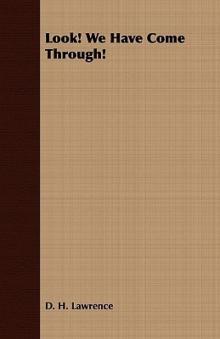 Look! We Have Come Through!
Look! We Have Come Through!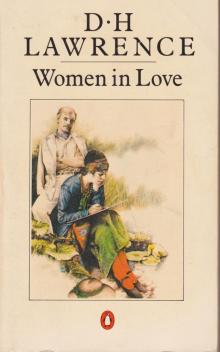 Women in Love
Women in Love The Ladybird
The Ladybird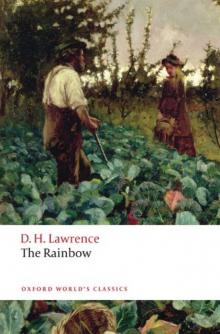 The Rainbow
The Rainbow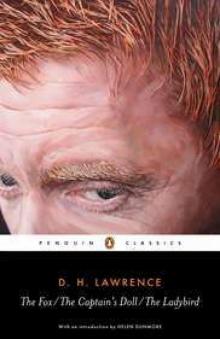 The Captain's Dol
The Captain's Dol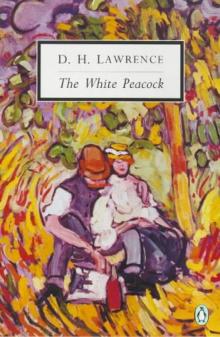 The White Peacock
The White Peacock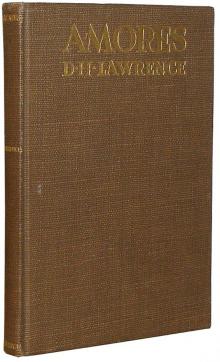 Amores
Amores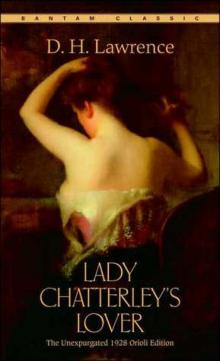 Lady Chatterley's Lover
Lady Chatterley's Lover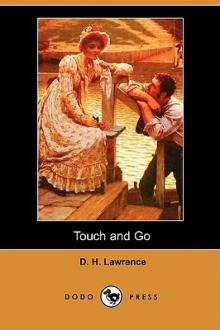 Touch and Go
Touch and Go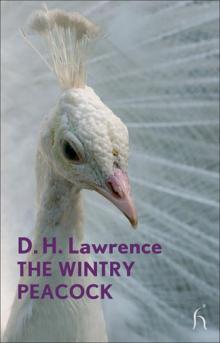 The Wintry Peacock
The Wintry Peacock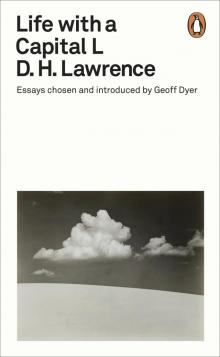 Life with a Capital L
Life with a Capital L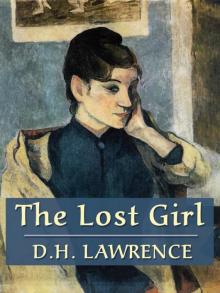 The Lost Girl
The Lost Girl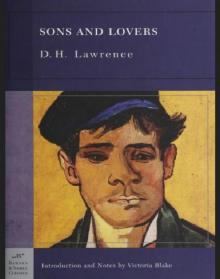 Sons and Lovers
Sons and Lovers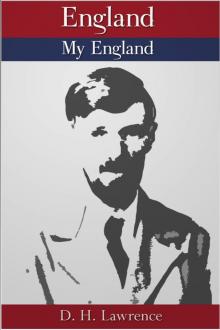 England, My England
England, My England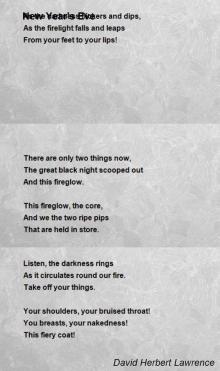 New Poems
New Poems Twilight in Italy
Twilight in Italy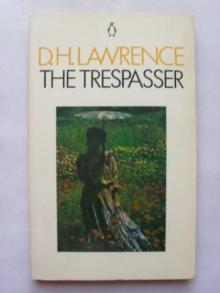 The Trespasser
The Trespasser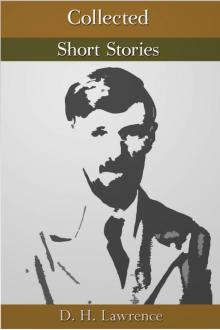 The Collected Short Stories
The Collected Short Stories The First Lady Chatterley's Lover
The First Lady Chatterley's Lover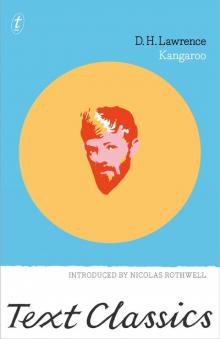 Kangaroo
Kangaroo Bay
Bay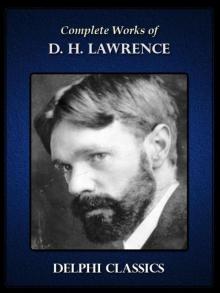 Complete Works of D.H. Lawrence
Complete Works of D.H. Lawrence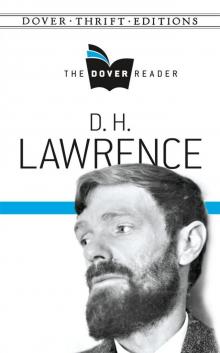 D H Lawrence- The Dover Reader
D H Lawrence- The Dover Reader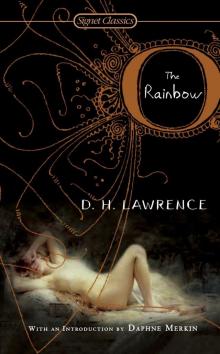 The Rainbow (100th Anniversary ed.)
The Rainbow (100th Anniversary ed.)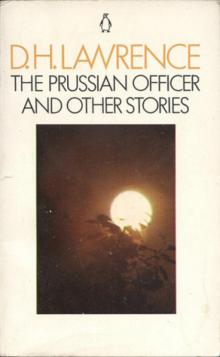 The Prussian Officer
The Prussian Officer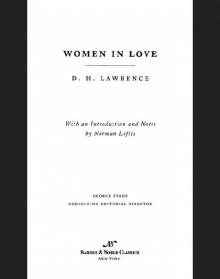 Women in Love (Barnes & Noble Classics Series)
Women in Love (Barnes & Noble Classics Series) John Thomas and Lady Jane
John Thomas and Lady Jane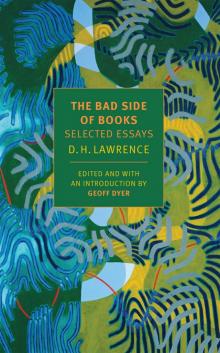 The Bad Side of Books
The Bad Side of Books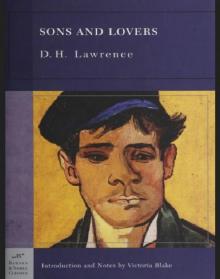 Sons and Lovers (Barnes & Noble Classics Series)
Sons and Lovers (Barnes & Noble Classics Series) Selected Stories
Selected Stories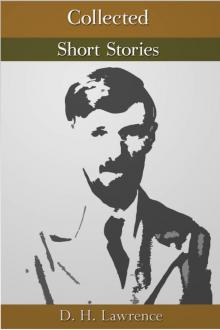 Collected Short Stories
Collected Short Stories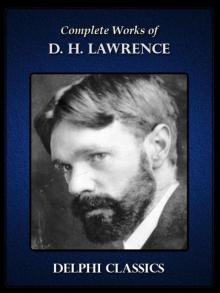 Complete Works of D.H. Lawrence (Illustrated)
Complete Works of D.H. Lawrence (Illustrated)